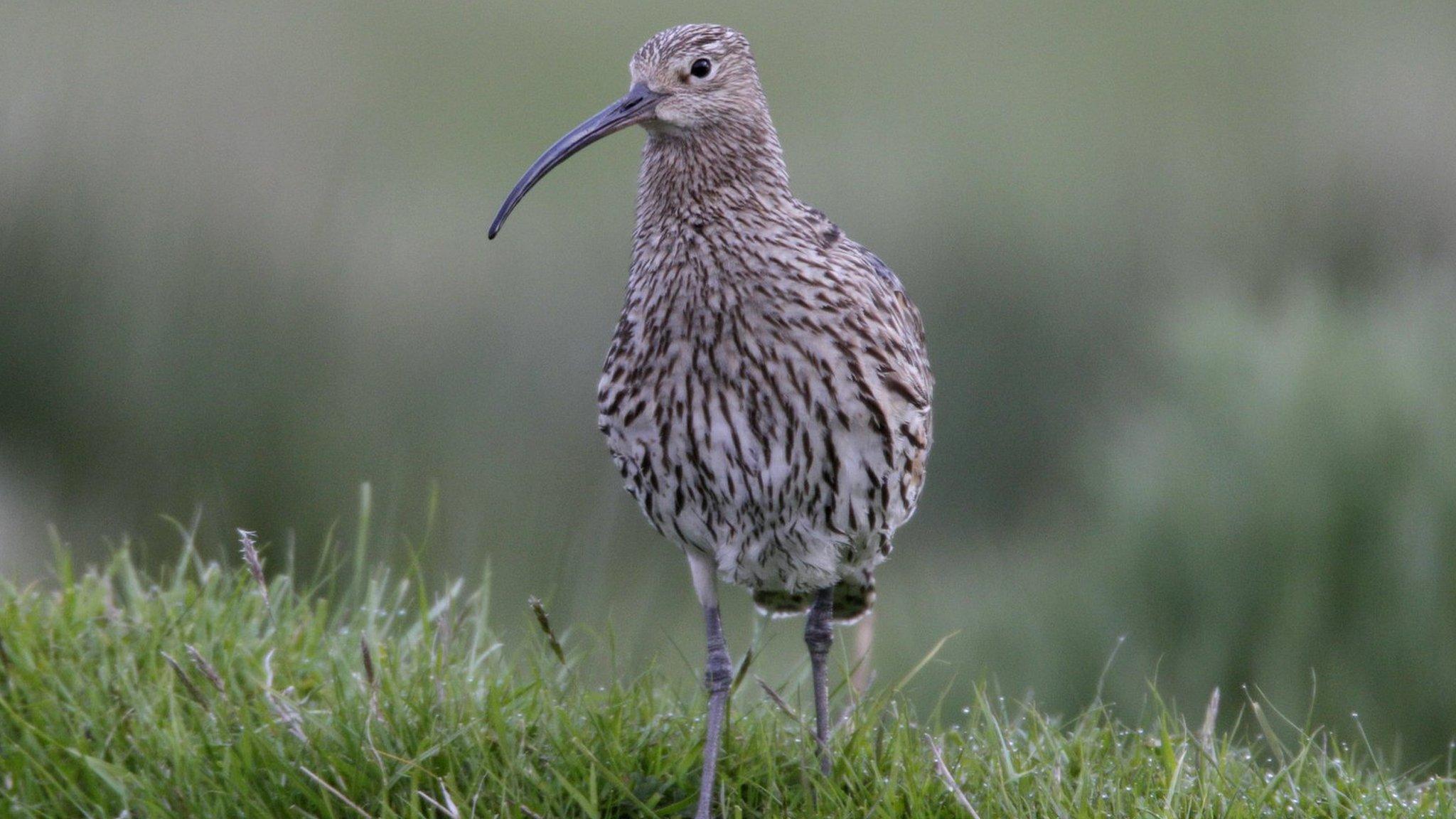Wader birds could become extinct 'without drastic action'
- Published
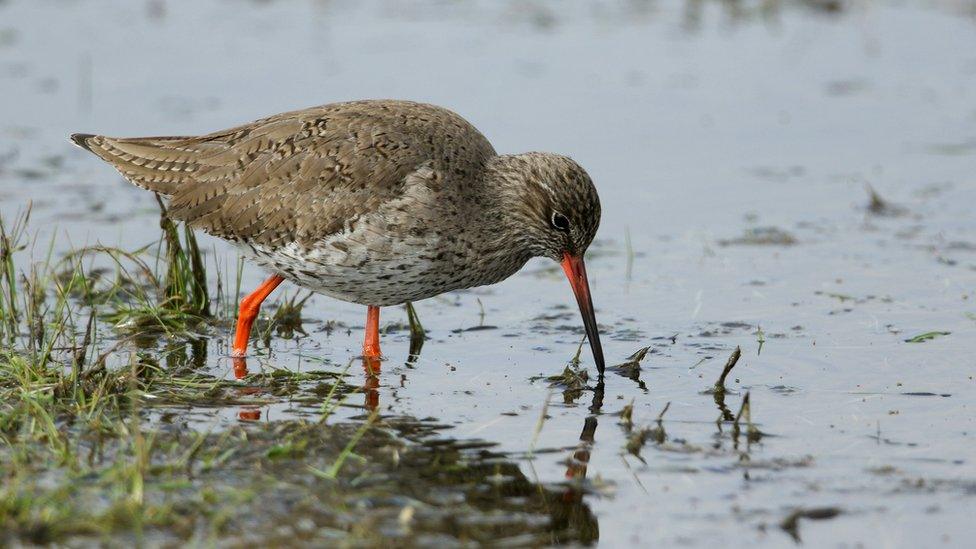
The redshank is one of the wader birds the RSPB says is under threat in Northern Ireland
A number of wader bird species could become extinct in Northern Ireland's countryside without "drastic action", the RSPBNI has warned.
The organisation's John Martin said "systemic change" was needed to tackle biodiversity loss.
Last year an RSPB report on bio-diversity loss , externalsuggested the UK was 12th worst of 240 countries.
Mr Martin said Northern Ireland "doesn't have a great story to tell" in terms of nature protection.
"Over the last 50 years there's been an intensification of agriculture in Northern Ireland which has fragmented habitats and there's been a loss of habitat and an impact on species," he said.
"Farmland birds, for example, have declined significantly.
"One out of 49 of our priority habitats is in good condition which is not great, 86% of our peatlands are degraded and, because of recent classification changes, no rivers, lakes or coastal water-bodies are in good condition."
Mr Martin said some wader bird species were under particular threat.
"Since 1987 a suite of four species - lapwing, redshank, curlew and snipe have declined by 83%," he said.
"So, essentially, if we don't do anything quite drastic for those species in the next five to 10 years we could be seeing them extinct in the wild countryside."
Mr Martin said the corncrake, which is found in parts of County Donegal and western Scotland, "essentially went extinct" in Northern Ireland.
However, through working on habitat in Rathlin Island "we have managed to bring them back and they've bred in Rathlin Island the last two years.
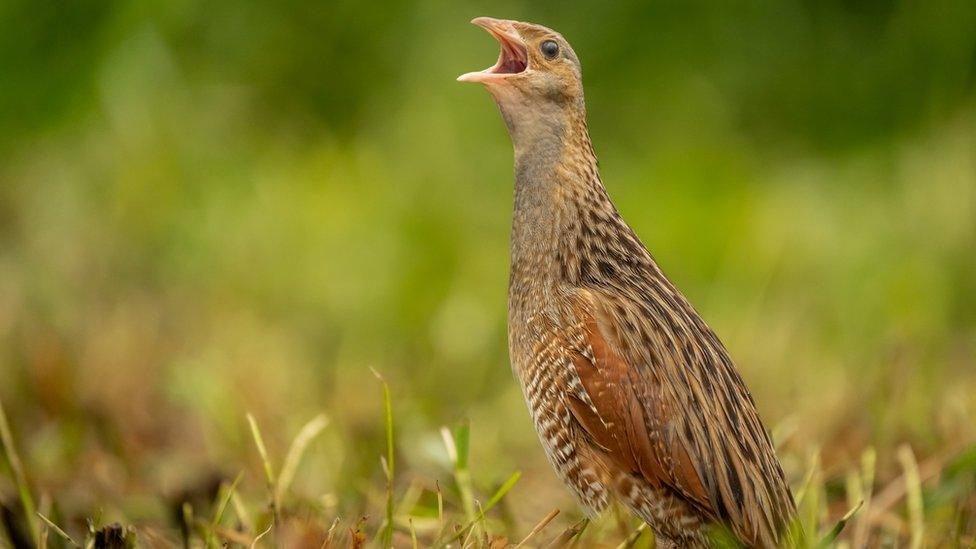
Corncrakes have returned to Rathlin Island
"It's one of the few examples where we've been able to bring a species back to a specific geography without having to do a specific reintroduction project.
"We've kind of brought the habitat back and that's brought the species back, so there is some hope for that suite of breeding wader species.
"There's lots of work ongoing, some farmers are doing great habitat enhancement work for those species in particular.
"So although those declines are quite stark and they are going in the wrong direction, there are some sparks of hope.
"But all those bits are piecemeal and we, as an organisation, are doing our bit, as are other environmental organisations, but we really do need a systemic change for how we use our land if we want to recover wildlife and nature and the environment for all of our benefits."
Mr Martin said that Northern Ireland was the one part of western Europe that doesn't have an independent environmental protection agency.
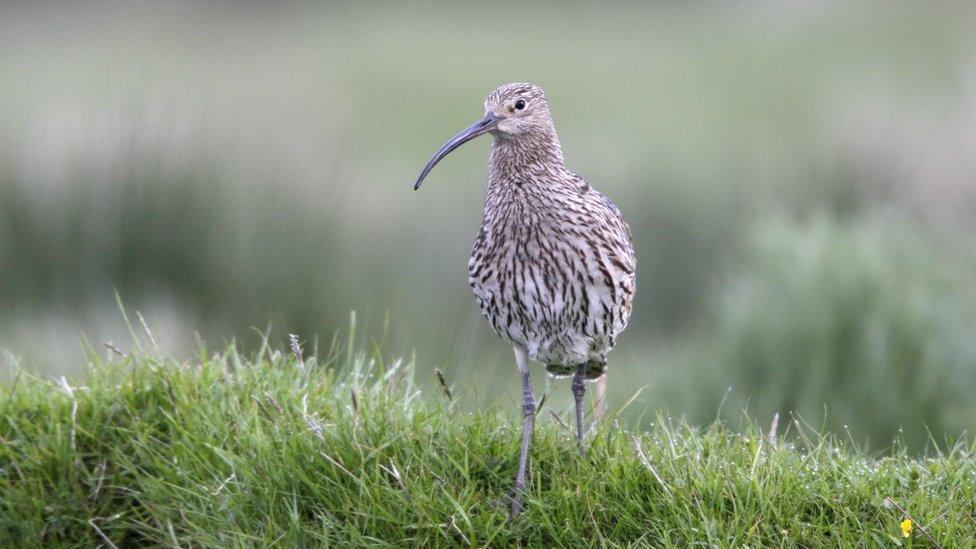
The curlew is another bird endangered in Northern Ireland
He added that if the NI Assembly gets back up and running there was a case for an agricultural bill that would incentivise farmers to take measures towards improving biodiversity, such as improving water quality and tree planting .
"We probably need primary legislation for that because at the minute the legislation that guides agriculture policy in Northern Ireland comes through Westminster," he said.
"As well we need targets in law for nature's restoration.
"The sooner the executive gets back up and running again the sooner we can move forward because we are in the midst of an environment and nature crisis.
"Any kind of crisis that exists needs a crisis-type response and we're not getting that at the minute from our government."
- Published25 March 2022
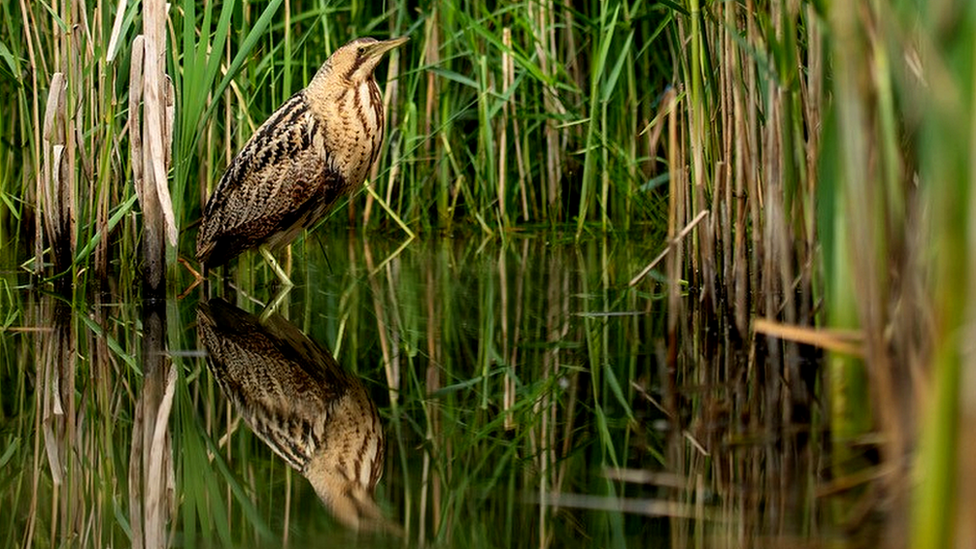
- Published7 June 2022
